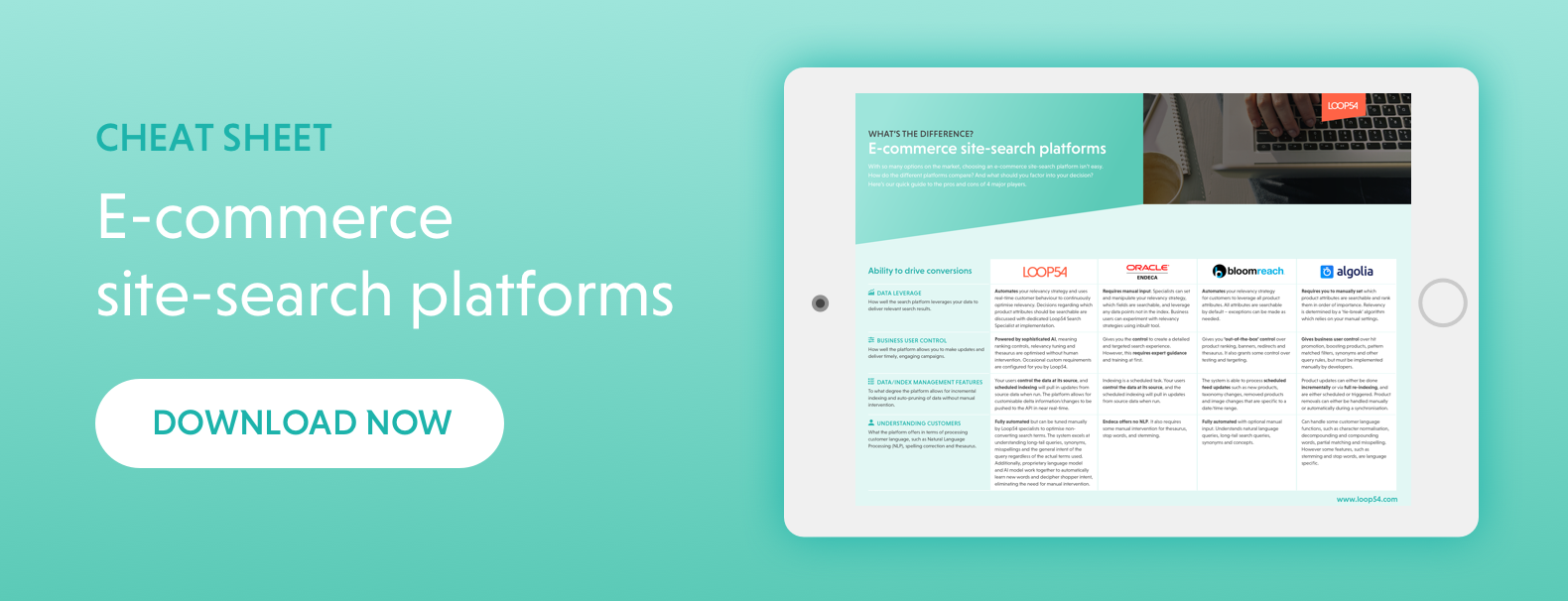With e-commerce projected to account for 17.5% of all retail purchases by 2021 (compared to 7.4% in 2015), the curtain call for brick-and-mortar stores is fast-approaching. It’s a trend that has long been in the making – thanks a lot to the success of e-commerce sites like Amazon and eBay – and it’s propelling traditional businesses away from high-street stores toward the limitless possibility of the world wide web.
This mass exodus toward the online sphere is a savvy business model; in the retail sector the mantra is always “adapt to survive” and cyberspace brings with it countless opportunities. But this move also comes with increased competition, new verticals, and a real and ever-present desire to stand out from the competition. After all, as marketplaces go, the entire internet is quite a busy one, and for consumers to stand up and take notice, a strong e-commerce strategy is indispensable.
What’s the Role of an E-Commerce Strategy?
An e-commerce strategy encompasses the direction, objectives, and plan of action required to strengthen the performance of a business. The general rule is “a well-researched strategy is an effective strategy”, and those organisations that spend time in the development stage will quickly come to realise the benefits of this approach.
This is important for one key reason: the way consumers purchase goods, and the demands they place on retail brands are constantly changing. As mentioned, adaptability breeds endurance (just ask Toys”R
How does Search Analytics Impact E-Commerce Strategy?
And what of search analytics, how does it fit into this dense wilderness of strategic e-commerce planning? Short answer: taking the time to analyse search trends and patterns will inform the strategy and lead to better results.
At its most basic, search analytics is the use of search data to investigate particular interactions of consumers. This can include any number of variables, but the most valuable analyses include:
- Which products consumers are searching for
- The search terms or keywords they’re using
- Any unexpected trends or patterns appearing
- The rate of conversion from search to purchase
This list could go on. For example, those more adept at utilising search analysis will often increase granularity, so results are device-, time-, or area-specific. But the point here is that the resulting analysis and aggregation of that analysis can be used in search engine marketing (SEM) and search engine optimisation (SEO).
Supercharging Your E-Commerce Strategy
So, how do the results of these four search data analyses help to supercharge e-commerce strategy? Well, using the results of the four search data analyses above, retailers are able to make better-informed decisions to maximise the benefits of the online marketplace.
From understanding of what prospective consumers are searching for, retailers are able to create targeted shopping experiences. This not only enhances personalisation and improves the customer journey throughout the site, but also triggers the If-This-Then-That rule – enabling retailers to up-sell complementary offerings, such as a surround-sound system alongside the purchase of a television, increasing sales, bottom-line, and profitability.
With insight into the terminology consumers are using when they utilise site-search functionality, retailers can look at re-aligning product terminology to match keywords. This helps to increase the relevancy of the results given to the consumer but also provides an opportunity to reduce the risk of searches resulting in null-results.
By identifying unexpected trends, such as sale-surges in specific products, retailers gain an opportunity to be more reactive in their SEM and SEO approaches. While seasonal patterns like Christmas Tree and Easter Egg sales are likely to increase around the given holidays, unexpected annual trends can be exploited to get a jump on the competition, increasing sales and reputation.
Finally, through the consistent tracking of conversion rates from search to purchase, retailers can continue to optimise and tweak these three approaches to strengthen the performance of the business. This will provide continued growth to the business as new markets and verticals are established and provide the adaptability data required for survival.
The Automotive Power of Machine Learning
Supercharging your e-commerce strategy using search analytics has a vast number of benefits, from increased bottom-line to improved personalisation, but performing these tasks yourself is often intricate, complex, and all-encompassing.
Thankfully, there's another way.
Machine learning continues to cement itself as one of the most ground-breaking technological developments of the 21st century and, by utilising intuitive algorithms, can be taught to recognise patterns and automate many of the strategic decisions related to e-commerce strategy.
With a machine learning-powered on-site product search, retailers reap the benefits of findability, more interest, and improved sales but do so without the long-hours of technical analysis and time-management.
The future of e-commerce has arrived. Those yet to realise the value of this technology, specifically regarding its strategic benefits, are now at high risk of being the wrong side of the technology curve.
To find out more about the value of machine learning, why not take a deep dive into how it works? Or, to compare a host of leading machine learning-powered site-search vendors and what they offer – get your hands on our latest e-commerce site-search platform cheat sheet.
Topics:

